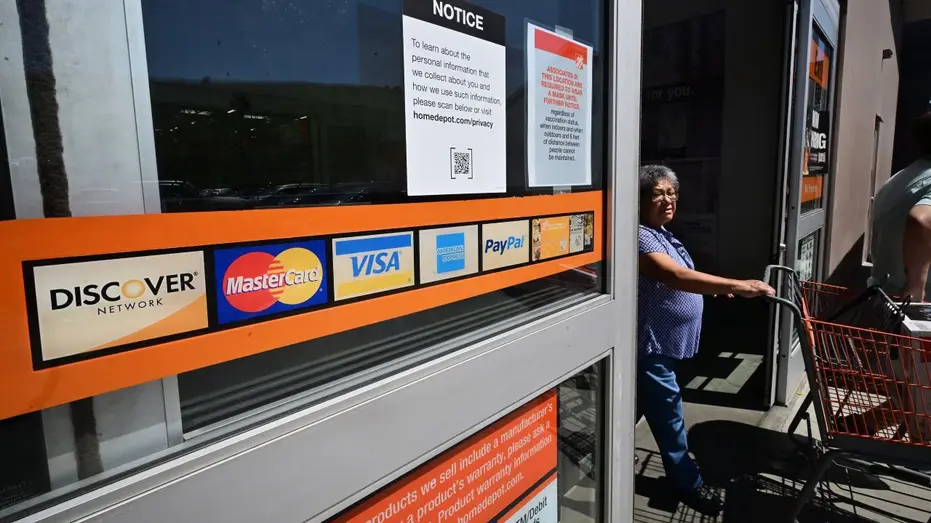Americans’ Credit Card Debt Hits $1.17 Trillion as Borrowing Costs Remain High(05.12.2024)
As inflation persists and interest rates remain elevated, credit card debt in the United States has reached unprecedented levels, painting a complex picture of the nation’s financial health. With balances rising, consumers are navigating a challenging economic landscape marked by the tension between robust spending and the mounting cost of borrowing.
✨Get a Dissertation Research Proposal on this Topic
Fill in the form and we will shortly create and send you the research proposal on "Americans’ Credit Card Debt Hits $1.17 Trillion as Borrowing Costs Remain High" for free.

Credit card debt has now soared to a record $1.17 trillion, according to the Federal Reserve Bank of New York’s latest report on household debt. This milestone comes as balances increased by $24 billion in the third quarter of 2024, representing an 8.1% year-over-year jump. Despite these growing balances, there is a glimmer of hope in improved delinquency rates, which declined to 8.8% of balances transitioning into delinquency, down from 9.1% in the previous quarter. New York Fed researchers suggest this slight improvement could indicate that rising debt levels remain manageable for many households, backed by relatively stable balance sheets.
However, the post-pandemic economic landscape complicates the picture. While credit card balances have been historically stable, the depletion of pandemic-era savings has fueled a steady rebound in consumer borrowing. Spending remains strong despite rising costs, but growth in credit card balances has started to slow. TransUnion’s latest report shows that the average balance per consumer is now $6,329, a smaller 4.8% annual increase compared to the double-digit growth rates seen in the two preceding years.
Financial burdens, however, are not evenly distributed. A survey by Achieve found that while 42% of Americans reported no change in their debt over the past three months, 28% saw their debt increase due to struggles in making ends meet, overspending, or job losses. Lower-income households, in particular, are bearing the brunt of these challenges, with inflation exacerbating the financial strain. Compounding the issue, the Federal Reserve’s 11 interest rate hikes have kept average credit card rates above 20%, making credit cards one of the most expensive borrowing options available.
Although potential future rate reductions could provide some relief to borrowers with variable-rate debt, experts caution that the sheer amount of borrowing is a larger concern than the interest rates themselves. The sustained pressure of high credit card debt underscores the uneven financial recovery across American households.
Conclusion
In conclusion, while the overall resilience of consumer spending and improving delinquency rates suggest a measure of stability, the growing burden of credit card debt highlights deep disparities in how economic conditions are affecting different segments of the population. As the nation grapples with record-high balances and persistent inflation, managing household debt and promoting financial equity will remain central challenges in the years ahead.
About ECEBiS
At ECEBiS you are going to understand what will change the trajectory of the financial industry. You will develop a transversal view on the forces that are shaping the future financial industry.
From payments and lending to investment and money management, tech providers are actively shaping the future of the financial landscape - even pushing the boundaries of currency itself. You might evaluate the impact of robo-advising on health management and examine portfolio recommendations from a diversified set of RAs and attempt to identify the factors behind proposed splits between asset classes.
ECEBiS is a platform in academic research on new business models and innovative products. We investigate in fast moving sectors that are reshaping the financial world of tomorrow and pioneering new ways of doing business. We want to attract outstanding ECEBiS students in finance with experiences and exposures, who intend to
Doctorate of Business Administration (DBA) in Finance (online, 3 years part-time)
develop knowledge on challenges that shape the future of financial industry
engage with a program that offers the convenience of online learning with the benefits of accreditation and global reach.
raise awareness on the importance of fintech and sustainability in finance
identify the best practices in the financial industry to spread positive changes
Go beyond the virtual classroom and network with other ambitious executives and entrepreneurs as you expand your credibility and expertise in the world’s most transformative fields.